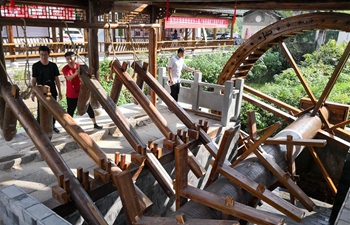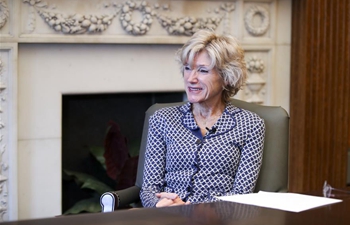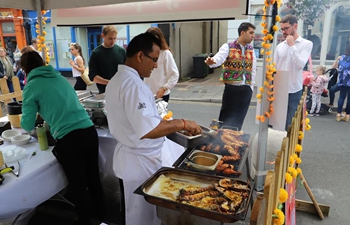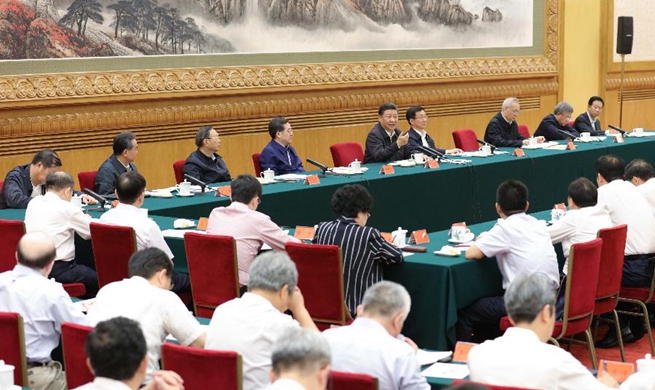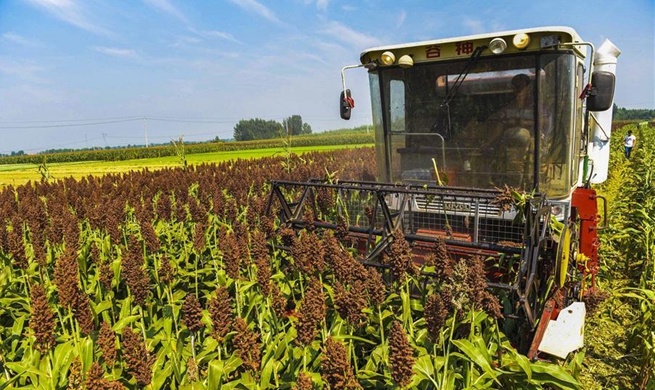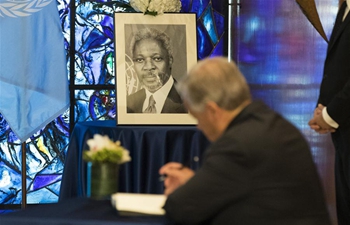NAIROBI, Aug. 27 (Xinhua) -- About a decade ago, internet cafes in Kenya were written off following the entrance of smartphones into the East African nation.
The phones became the main gadget through which Kenyans accessed the internet, accounting for 99 percent of the market, according to the Communication Authority of Kenya.
However, despite the onslaught from mobile phones, cybercafes have survived 10 years later.
While their numbers have reduced significantly across the East African nation, a considerable number has remained in operation, defying the smartphones.
And this is because the internet cafes metamorphosed into government service points. The businesses are now the main places where Kenyans access government services, outside state offices.
Some of the government services the East African nation's citizens access through the cafes are applying for tax certificate, filing of tax returns, conducting land searches, buying electricity tokens and application and renewal of driving licenses.
Citizens further apply for visa for those in need of traveling at the cafes, but Kenyan government services are the boon for the internet outlets.
Moses Mutie, who runs a cybercafe on the east of Nairobi, said he no longer worries his business would collapse.
"When smartphones came, I was deeply concerned that my business would die because customers disappeared. Then I took a loan and started a mobile money outlet as a value addition to enable me to pay rent," he told Xinhua in a recent interview.
But as luck would have it for Mutie and other cybercafe operators, several government agencies took their services online.
"The annual filing of tax returns and application for certificates was the biggest boost we got. This stabilized my business," said Mutie who charges less than 1 U.S. cent per minute.
These services ensured the people flock his shop, and being the only one surviving in the estate, Mutie has a monopoly.
More boost came from sale of electricity tokens and the establishment of e-citizen services.
"E-citizen brings all government services at one point. Anyone who wants to apply for passport, pay stamp duty and renew driving licenses, among others, has to log into the portal. They therefore come to cyber," he explained.
June brought a boom to cybercafe operators as it was the deadline when Kenyans were to file their tax returns.
"This place was busy especially the last two weeks of the month. I hired an extra hand and brought in two more computers to handle traffic," said John Njeru, a cybercafe operator in Nairobi's central business district.
Currently, he is assisting businesspersons file their value added tax returns, as deadline issued by the Kenya Revenue Authority (KRA) looms.
"With KRA, as cybercafe owners, we have an agreement with it that we handle things like tax certificate applications. So when people go their offices, they send them to us giving us business," he noted.
The number of internet users in Kenya now stands at 36 million, according to the latest report from the Communications Authority, with majority of people using their phones.
Bernard Mwaso, a consultant with Edell IT Solutions in Nairobi, noted that besides government services, other things that have made the cybercafes survive are low broadband charges following increased competition and services like agency banking and mobile money.
"Charges dropped cushioning the internet cafes owners from things like rising rent since it is hard to increase their charges per minute. The cost of computers is also down," he said.
He added that cybercafe operators have become agents of banks and telecoms thus leveraging on their premises and licenses as the services add value to their business.

